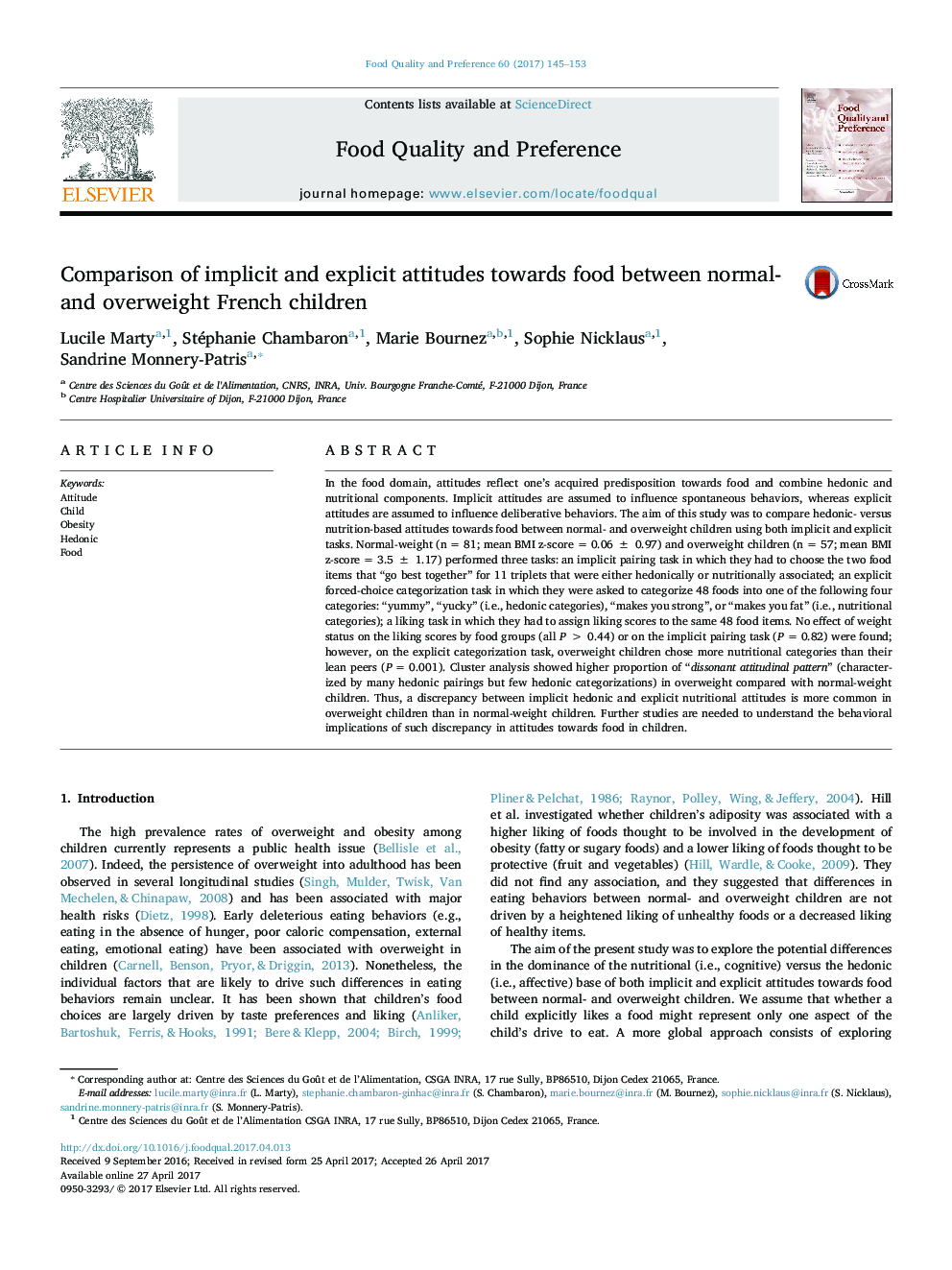| Article ID | Journal | Published Year | Pages | File Type |
|---|---|---|---|---|
| 5736108 | Food Quality and Preference | 2017 | 9 Pages |
â¢There is no difference in liking for foods between normal- and overweight children.â¢Implicit attitudes towards food are as hedonic-based in normal- as in overweight children.â¢Explicit attitudes towards food are more nutrition-based in overweight children.â¢Overweight children have discrepant implicit and explicit attitudes towards food.
In the food domain, attitudes reflect one's acquired predisposition towards food and combine hedonic and nutritional components. Implicit attitudes are assumed to influence spontaneous behaviors, whereas explicit attitudes are assumed to influence deliberative behaviors. The aim of this study was to compare hedonic- versus nutrition-based attitudes towards food between normal- and overweight children using both implicit and explicit tasks. Normal-weight (n = 81; mean BMI z-score = 0.06 ± 0.97) and overweight children (n = 57; mean BMI z-score = 3.5 ± 1.17) performed three tasks: an implicit pairing task in which they had to choose the two food items that “go best together” for 11 triplets that were either hedonically or nutritionally associated; an explicit forced-choice categorization task in which they were asked to categorize 48 foods into one of the following four categories: “yummy”, “yucky” (i.e., hedonic categories), “makes you strong”, or “makes you fat” (i.e., nutritional categories); a liking task in which they had to assign liking scores to the same 48 food items. No effect of weight status on the liking scores by food groups (all P > 0.44) or on the implicit pairing task (P = 0.82) were found; however, on the explicit categorization task, overweight children chose more nutritional categories than their lean peers (P = 0.001). Cluster analysis showed higher proportion of “dissonant attitudinal pattern” (characterized by many hedonic pairings but few hedonic categorizations) in overweight compared with normal-weight children. Thus, a discrepancy between implicit hedonic and explicit nutritional attitudes is more common in overweight children than in normal-weight children. Further studies are needed to understand the behavioral implications of such discrepancy in attitudes towards food in children.
